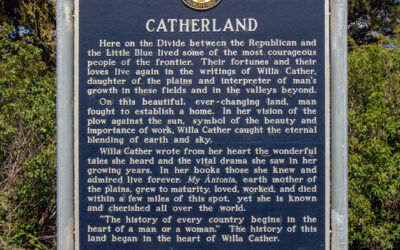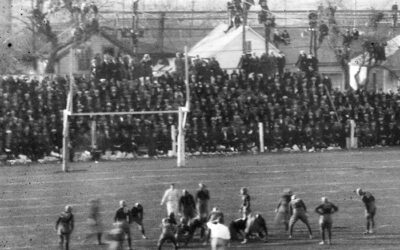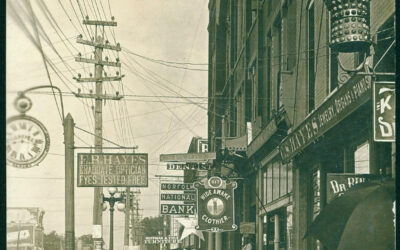By David L. Bristow, Editor
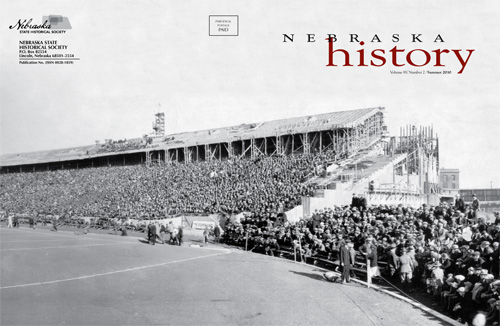
Game Day at Memorial Stadium is a long Nebraska tradition—since 1923, in fact.
The cover of the Summer 2010 issue of Nebraska History Magazine features the still-under-construction stadium. Though unfinished, the new stadium held a then-Nebraska record crowd of 43,000 as Nebraska played Notre Dame on November 10, 1923. But a magazine cover doesn’t allow us to show the entire panorama:

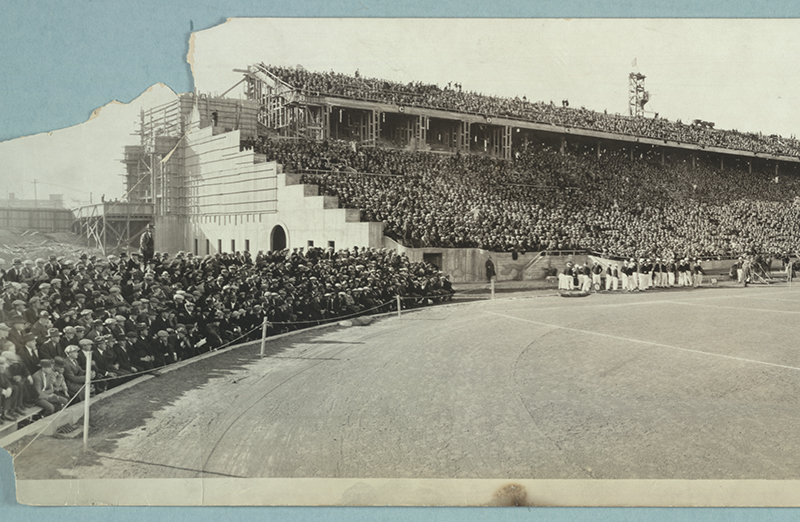
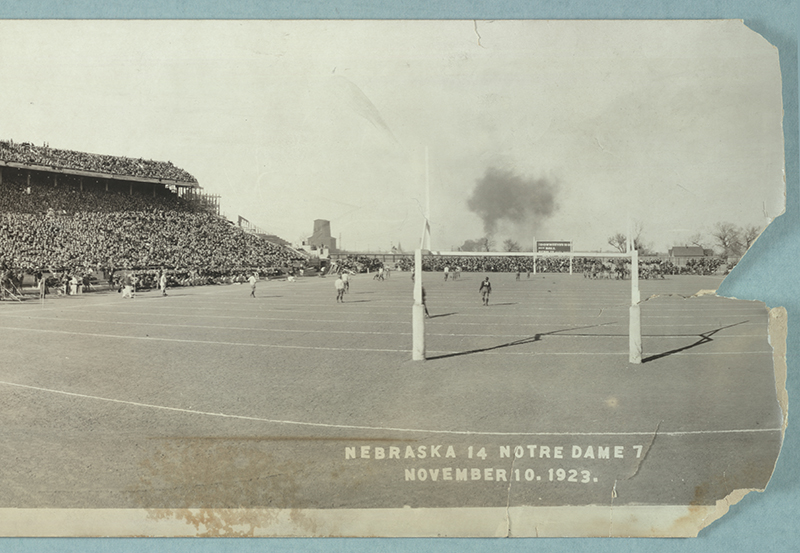
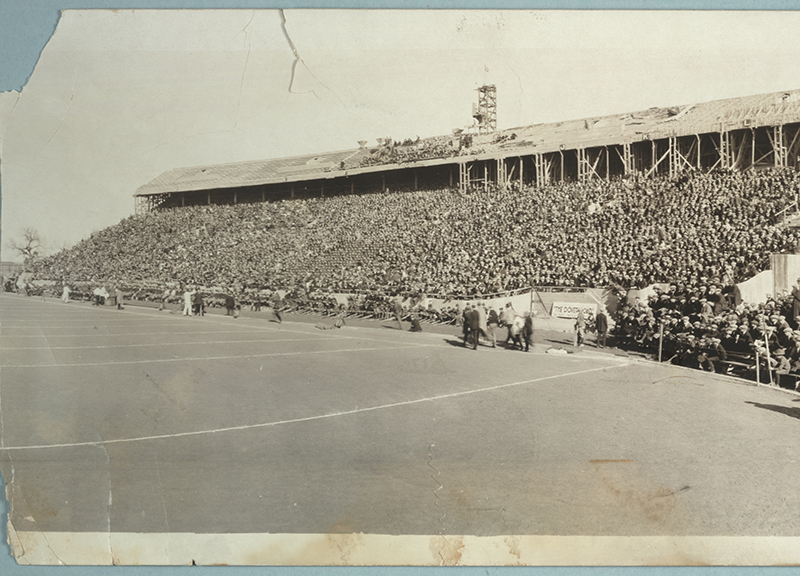
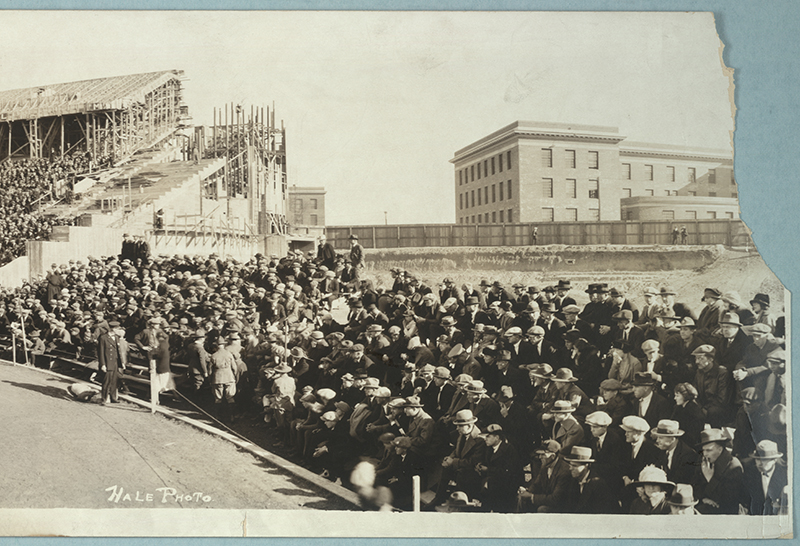
Incidentally, this wasn’t even the new stadium’s first game. The Cornhuskers had already inaugurated Memorial Stadium by beating Oklahoma 24-0 on October 13, 1923, and the following week played Kansas to a scoreless tie on homecoming.
There are some other fascinating details we want to point out too.
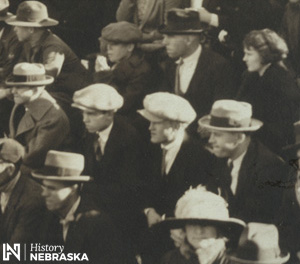
The crowd is overwhelmingly male, but you can spot a few women if you look closely
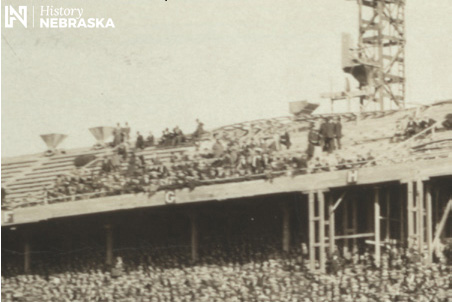
Some fans sat in the unfinished upper balcony.
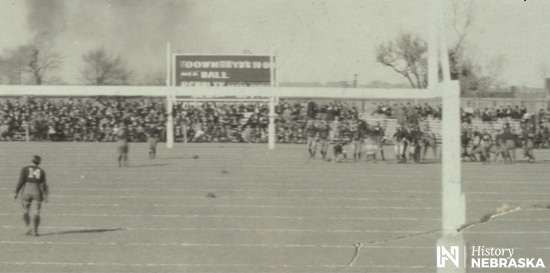
The players themselves are nearly lost in the sprawling photo.
The November 10 game was a classic. Nebraska upset Notre Dame 14-7. Between 1922 and 1924, Notre Dame Coach Knute Rockne’s legendary “Four Horsemen” lost only two games. Both were at Nebraska.
The Irish got their revenge in South Bend in 1924, when they pounded the Huskers 34-6 en route to a national championship. Between 1915 and 1925, Nebraska and Notre Dame played eleven times, with five wins apiece and one tie. It was one of the most heated rivalries in college football. Then the series ended in a strange fashion.
These days, Nebraska fans are generally known for being polite to visiting teams. It wasn’t always so. Notre Dame returned to Lincoln in 1925, losing to Nebraska 17-0. Details are fuzzy, but strong anti-Catholic sentiment and abuse by fans led Notre Dame to cancel the 1926 game despite Knute Rockne’s desire to keep the profitable series going.
Nebraska football coach Ernest Bearg said that Notre Dame officials “informed me that the game in Lincoln was played in an atmosphere of hostility and that the klan spirit was apparently dominant in Lincoln.” This wasn’t empty talk. The Ku Klux Klan had 5,000 members in Lincoln at the time, about 10 percent of the city’s population. The organization was not just anti-black; it also hated Catholics and ethnic minorities. For his part, Coach Bearg blamed the decision on “disgruntled gamblers in South Bend” who were tired of losing their money. Either way, Nebraska and Notre Dame did not play each other again for twenty-two years.

